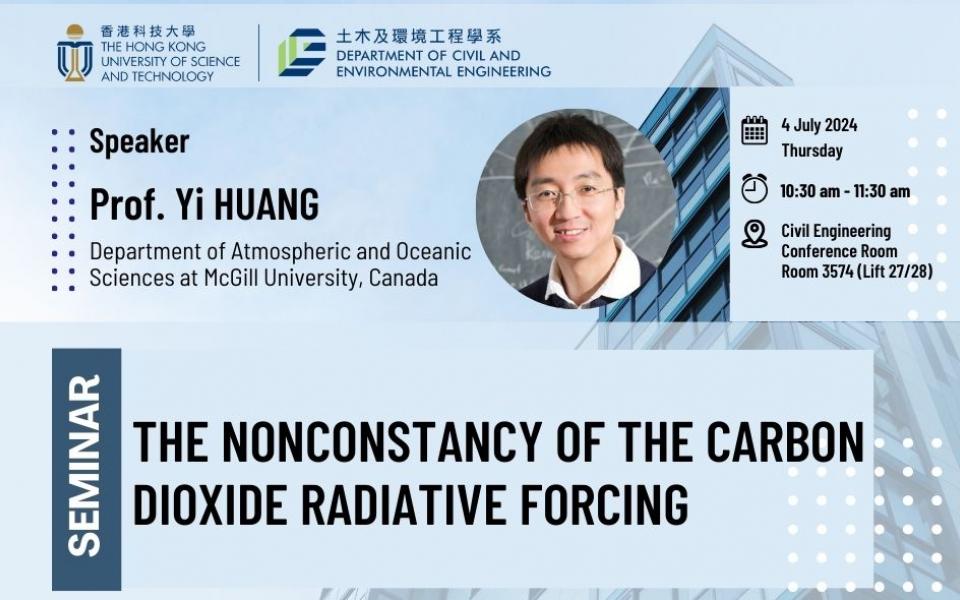Civil Engineering Departmental Seminar - The nonconstancy of the carbon dioxide radiative forcing
Supporting the below United Nations Sustainable Development Goals:支持以下聯合國可持續發展目標:支持以下联合国可持续发展目标:
The nonconstancy of the carbon dioxide radiative forcing
It has been increasingly recognized that the radiative forcing of carbon dioxide is not a constant, but a value that varies with location and time. For example, negative forcing values have been reported in Antarctica, which seemingly signifies a cooling, instead of warming, effect on the local climate. In this talk, I will first review the physics of radiative transfer that gives rise to the nonconstancy of the carbon dioxide radiative forcing and the resulted global pattern. The negative forcing in Antarctica is found to be predominantly caused by the stratospheric, as opposed to near-surface, temperature inversion. That the carbon dioxide absorption spectrally overlaps with water vapor leads to a change of sign of its impact on the atmospheric energy budget when going from low to high latitudes. Then, I will discuss the climate implications of the nonconstancy of the carbon dioxide forcing. Using mechanism denial experiments conducted with climate models, we tested different aspects of climate responses to the pattern effects of the carbon dioxide forcing, ranging from its differential heating within the tropics, across different latitude bands and at different vertical levels, respectively. For example, the poleward energy transports in the atmosphere and ocean are found to increase and decrease, respectively, driven by the contrasting meridional gradients of the forcing in the two fluid components. The unique heating rate profile of the carbon dioxide forcing is found to destabilize the troposphere and give rise to convective and circulation adjustments during climate change.
Yi Huang is an Associate Professor in the Department of Atmospheric and Oceanic Sciences at McGill University, Canada. He obtained his Ph.D. at Princeton University and was a Climate and Global Change Postdoctoral Fellow at Harvard University before joining the faculty at McGill. His research is focused on climate physics and atmospheric radiation. His contributions include advancements in radiative transfer theories, such as explaining the logarithmic dependency and spatial pattern of the greenhouse gas forcing, and developments of remote sensing techniques applied to satellite and ground-based instruments. He is currently the PI of the Greenhouse Gas-Montreal project aimed to measure the 3-D distributions of greenhouse gases at the city-level, and a science co-Lead of the Canadian Satellite mission, High-altitude Aerosols, Water vapour and Clouds (HAWC).
